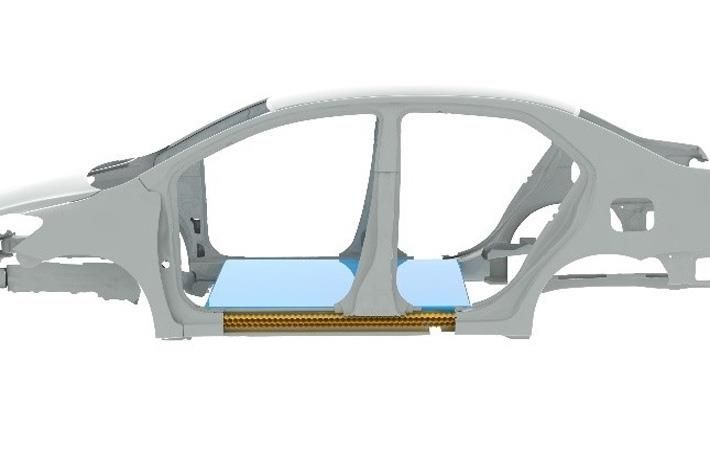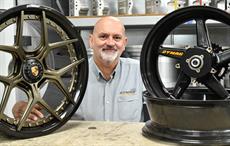Global petrochemicals leader Sabic has unveiled Xenoy Htx resin, a polyester-based, high-heat technology that can be used to produce light, impact resistant and high performing structural automotive components. Relevant applications include body-in-white components, structural reinforcements and battery protection systems for electric vehicles (EVs).
Xenoy Htx resin is especially relevant for today’s automakers, who need new polymer solutions for the production of structural components capable of withstanding higher temperatures, including those of e-coating lines operating above 180 degrees Celsius. Relevant applications include body-in-white components, structural reinforcements and battery protection systems for electric vehicles (EVs).Global petrochemicals leader Sabic has unveiled Xenoy Htx resin, a polyester-based, high-heat technology that can be used to produce light, impact resistant and high performing structural automotive components. Relevant applications include body-in-white components, structural reinforcements and battery protection systems for electric vehicles (EVs).#
Xenoy Htx resin is available in unfilled and glass-filled grades and offers significant weight savings compared to steel and aluminum. The new family of thermoplastic materials from Sabic also provides a drop-in alternative for polyamide 6.6 (PA66) compounds and alloys, which has recently seen frequent supply shortages and price fluctuations.
“We are strongly committed to investing in the future of the automotive industry by developing technologies that can deliver greater value and help our customers either meet new requirements or stretch the limits of performance,” says Amanda Roble, global leader of SABIC’s Automotive Business. “A good proof point of that commitment is our new Xenoy Htx resin portfolio, which answers the call for material solutions that can allow structural reinforcements to go through the e-coat process and maintain their energy absorbing properties and other performance attributes over a wider temperature range.”
The first products of this new high-heat resin technology to be introduced include unfilled Xenoy Htx 950 as well as two glass fibre reinforced grades, Xenoy Htx 975 and Xenoy Htx 575.
The unfilled resin is modified to absorb significant energy and withstand plastic deformation in the event of a crash. SABIC is targeting the material for use as a lightweight metal replacement solution in new safety applications, including side rockers designed to offer protection for battery modules mounted to the floor of EVs.
At K 2019, SABIC is displaying the structural lightweighting capabilities of the new technology with a 3D printed prototype of a rocker panel reinforcement designed for EV battery side protection. When exposed to temperatures of -30 degrees Celsius, many competitive engineering plastics tend to become brittle and fracture under load. Xenoy Htx can deliver low-temperature ductility and a very high elongation that enables stable performance under such conditions. In addition, the new technology provides enhanced flowability, resulting in greater design freedom for complex geometries and cost-efficient part consolidation.
Hybrid honeycomb designs with Xenoy Htx can potentially save up to 60 per cent of the weight normally associated with traditional all-metal based, multi-piece steel or extruded aluminum crash countermeasures, without compromising on dimensional stability, rigidity and mechanical strength.
The glass-filled grades are particularly suitable for demanding body-in-white structures that must be capable of enduring e-coating cycles of 30 minutes at temperatures between 180 degrees Celsius and 220 degrees Celsius. The grade can also be used to produce other structural parts subjected to high service temperatures, including front-end modules, front brackets and under-the-hood components.
The significant lightweighting potential of Xenoy Htx is not only instrumental for improving the fuel efficiency of combustion engine vehicles, but also for offsetting some of the substantial weight added by battery modules in EVs.
Fibre2Fashion News Desk (SV)


